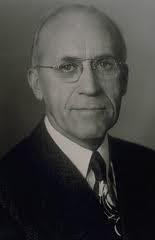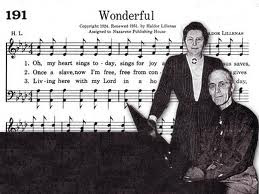
All glory, laud, and honor,Matthew 21:8 says that a very large crowd spread their cloaks on the road and others cut tree branches and spread them on the road.
to thee, Redeemer, King,
to whom the lips of children
made sweet hosannas ring.
This all happened to fulfill the prophecy of Zechariah 9:9:
Rejoice greatly, O Daughter of Zion!
Shout, Daughter of Jerusalem!
See, your king comes to you,
righteous and having salvation,
gentle and riding on a donkey,
on a colt, the foal of a donkey.
We are commanded in these verses to rejoice and shout. Palm Sunday is a day of celebration. Our King is establishing His kingdom. He has secured it for us. We rejoice because because He brings us salvation. "Rejoice in the Lord always. I will say it again: Rejoice!" (Philippians 4:4)
The people of the HebrewsThat salvation came at a price we can't imagine. What He did for us on Good Friday and on Easter deserves our undying praise. And He gives us all eternity to praise Him. How glorious it will be. "Sing to God, sing praise to his name, extol him who rides on the clouds — his name is the LORD— and rejoice before him." (Psalm 68:4)
with psalms before thee went;
our prayer and praise and anthems
before thee we present.
Yet a mere five days later, these same crowds cried out, "Crucify him, crucify him!"
Is that how fast our devotion for our Lord evaporates? Or do we live a life of praise - no matter what the circumstances? Living a life of praise is a conscious decision. Each day we must pray for the strength to praise Him in all things. Palm Sunday should live in our hearts, not just on this day, but every day of the year. Every minute of our lives, we should be mindful of Palm Sunday, Good Friday and Easter. "Praise be to the Lord, to God our Savior, who daily bears our burdens." (Psalm 68:19)
Thou didst accept their praises;
accept the prayers we bring,
who in all good delightest,
thou good and gracious King.
All glory, laud, and honor,
to thee, Redeemer, King,
to whom the lips of children
made sweet hosannas ring.






